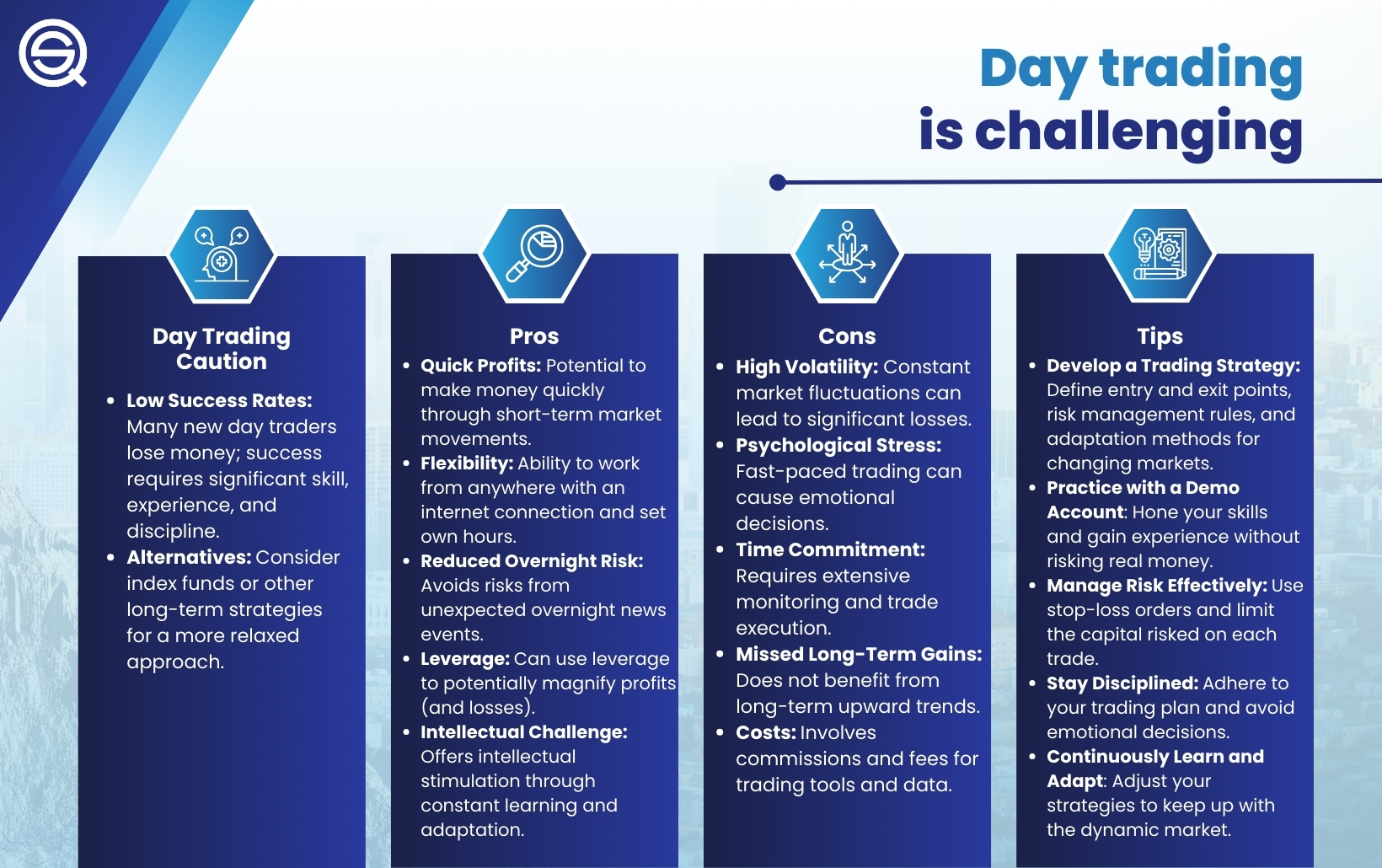Did you know that even the most seasoned traders can experience jitters that rival a squirrel on caffeine? In the fast-paced world of trading, psychological resilience is crucial for success. This article dives into essential strategies for developing mental toughness, controlling emotions, and maintaining discipline during market volatility. Discover how mindfulness, self-awareness, and effective journaling can enhance your trading mindset and build confidence after losses. Learn to identify common psychological pitfalls and develop habits that support long-term success, all while avoiding the trap of overtrading under pressure. With insights from DayTradingBusiness, you'll be equipped to handle failure and embrace patience as you navigate the trading landscape.
How Can Traders Develop Mental Toughness?
Traders build psychological resilience by practicing disciplined risk management, staying consistent with their strategies, and learning to accept losses without emotional swings. Developing a strong trading routine, maintaining a growth mindset, and staying focused on long-term goals also strengthen mental toughness. Regularly reviewing trades and learning from mistakes builds confidence and reduces emotional reactions. Staying physically healthy and managing stress help traders stay mentally sharp during volatile markets.
What Are Effective Strategies for Trading Psychology?
Focus on emotional awareness to recognize triggers. Develop a disciplined trading plan and stick to it. Manage risk with stop-loss orders to reduce fear. Practice patience and avoid impulsive decisions. Keep a trading journal to reflect on mistakes and progress. Stay consistent, avoid overtrading, and take breaks when needed. Build confidence through continuous learning and small wins. Maintain perspective by not tying self-worth to trading results.
How Does Emotional Control Improve Trading Performance?
Emotional control helps traders stick to their strategies and avoid impulsive decisions during market swings. It reduces panic selling and greed-driven buying, leading to more consistent profits. By managing emotions, traders stay focused, make rational choices under pressure, and recover faster from losses. Building psychological resilience means handling stress better, maintaining discipline, and preventing emotional reactions from clouding judgment. This mental toughness creates a steadier trading mindset, improving long-term performance.
What Role Does Discipline Play in Trading Resilience?
Discipline keeps traders focused on their strategies, preventing emotional reactions that can cause losses. It helps them stick to risk management and avoid impulsive decisions, reducing volatility in their mindset. Consistent discipline builds confidence and mental toughness, making traders more resilient during downturns. By maintaining routines and rules, traders resist panic and stay steady through market swings.
How Can Traders Manage Stress During Market Volatility?

Traders build psychological resilience by developing a solid trading plan, setting clear goals, and sticking to risk management strategies. Practicing mindfulness or meditation helps stay calm amid market swings. Regular breaks prevent emotional burnout, and maintaining a balanced lifestyle supports mental strength. Accepting losses as part of trading reduces panic during volatility. Building confidence through education and experience makes it easier to handle unpredictable markets.
What Techniques Help Overcome Trading Anxiety?
Deep breathing and mindfulness reduce stress during trading. Developing a solid trading plan and sticking to it builds confidence. Practicing disciplined risk management minimizes emotional swings. Regularly reviewing past trades helps detach emotions from outcomes. Setting realistic goals prevents frustration and burnout. Taking breaks avoids mental fatigue. Building a routine creates consistency and reduces uncertainty. Accepting losses as part of trading reduces fear and guilt. Connecting with other traders offers support and perspective.
How Important Is Mindfulness for Traders?
Mindfulness is crucial for traders because it helps maintain emotional control, reduces impulsive decisions, and keeps focus sharp during volatile markets. It builds psychological resilience by fostering awareness of emotional triggers and promoting calmness under pressure. Traders who practice mindfulness can better manage stress, avoid burnout, and stick to their trading plan amid market chaos. Without it, emotional reactions often lead to costly mistakes and missed opportunities.
How Can Traders Build Confidence After Losses?
Traders rebuild confidence after losses by analyzing what went wrong, learning from mistakes, and practicing disciplined risk management. They focus on small wins to regain trust in their strategies. Developing a solid trading plan and sticking to it reduces emotional reactions. Taking breaks to clear the mind prevents burnout. Consistently reviewing progress helps reinforce positive habits and rebuilds trust in their skills.
What Are Common Psychological Pitfalls for Traders?

Common psychological pitfalls for traders include overconfidence, fear of missing out, revenge trading, revenge trading, and emotional reactions to losses. These trap traders into impulsive decisions, risk overexposure, or holding onto losing positions too long. They often feel anxiety, frustration, or euphoria, which clouds judgment. Recognizing these pitfalls is key to building psychological resilience.
How Does Self-Awareness Boost Trading Resilience?
Self-awareness helps traders recognize emotional triggers and biases, reducing impulsive decisions. It enables them to stay calm during market swings, maintaining discipline under stress. By understanding their strengths and weaknesses, traders adapt better to setbacks, building mental toughness. This awareness fosters consistent, rational choices, preventing emotional reactions from sabotaging trades. Ultimately, self-awareness strengthens resilience by helping traders navigate volatility with confidence.
How Can Journaling Enhance Trading Mindset?
Journaling helps traders track emotions, identify patterns, and reflect on mistakes, building psychological resilience. It clarifies thoughts, reduces impulsive decisions, and reinforces discipline. By documenting wins and losses, traders develop self-awareness and emotional control, strengthening their mental toughness in volatile markets.
What Habits Support Long-Term Trading Success?
Develop a routine to manage stress, stay disciplined, and keep emotions in check. Practice mindfulness or meditation daily to stay calm during market swings. Set realistic goals and accept losses as part of trading. Maintain a trading journal to learn from mistakes without emotional judgment. Develop patience and avoid impulsive trades. Keep a balanced lifestyle—exercise, sleep well, and disconnect from screens. Build confidence through continuous education and small wins. Cultivate emotional resilience by facing setbacks without panic or frustration.
How Can Traders Avoid Overtrading Under Pressure?
Traders avoid overtrading under pressure by developing strong mental discipline, setting clear trading limits, and sticking to their strategies. Practicing mindfulness and taking regular breaks helps manage emotions. Building confidence through consistent, small wins prevents impulsive decisions. Accepting losses as part of trading reduces the urge to overtrade. Having a pre-defined trading plan and adhering to risk management rules keeps emotions in check.
What Is the Impact of Patience in Trading?
Patience helps traders avoid impulsive decisions, reduces emotional stress, and allows for better analysis of market trends. It builds psychological resilience by teaching discipline, helping traders stick to their plans during volatility. When traders wait for the right setups, they improve their chances of success and recover faster from losses. Patience also fosters confidence, making it easier to handle setbacks without panic.
How Do Successful Traders Handle Failure?
Successful traders handle failure by accepting it as part of the learning process and avoiding emotional reactions. They analyze mistakes objectively, adjust strategies, and stay disciplined. Building psychological resilience involves developing a strong mindset, managing stress, sticking to a trading plan, and maintaining confidence despite setbacks. They view losses as opportunities to improve rather than personal failures.
Conclusion about How Can Traders Build Psychological Resilience?
Building psychological resilience is essential for traders aiming for long-term success. By developing mental toughness and employing effective strategies for trading psychology, individuals can enhance their emotional control and discipline. Techniques such as mindfulness and journaling not only help manage stress during market volatility but also foster self-awareness and confidence after losses. Recognizing common pitfalls and cultivating patience further contribute to a trader's ability to navigate challenges. Incorporating these principles will ultimately lead to improved trading performance. For more in-depth insights and support, DayTradingBusiness is here to guide you on your trading journey.
Sources:
- October 2015 GFSR Chapter 2: Market Liquidity—Resilient or ...
- Why we heal: The evolution of psychological healing and ...
- The psychological drivers of entrepreneurial resilience in the tourism ...
- Entrepreneurial resilience during challenging times - ScienceDirect
- A peer-to-peer trading model to enhance resilience: A blockchain ...